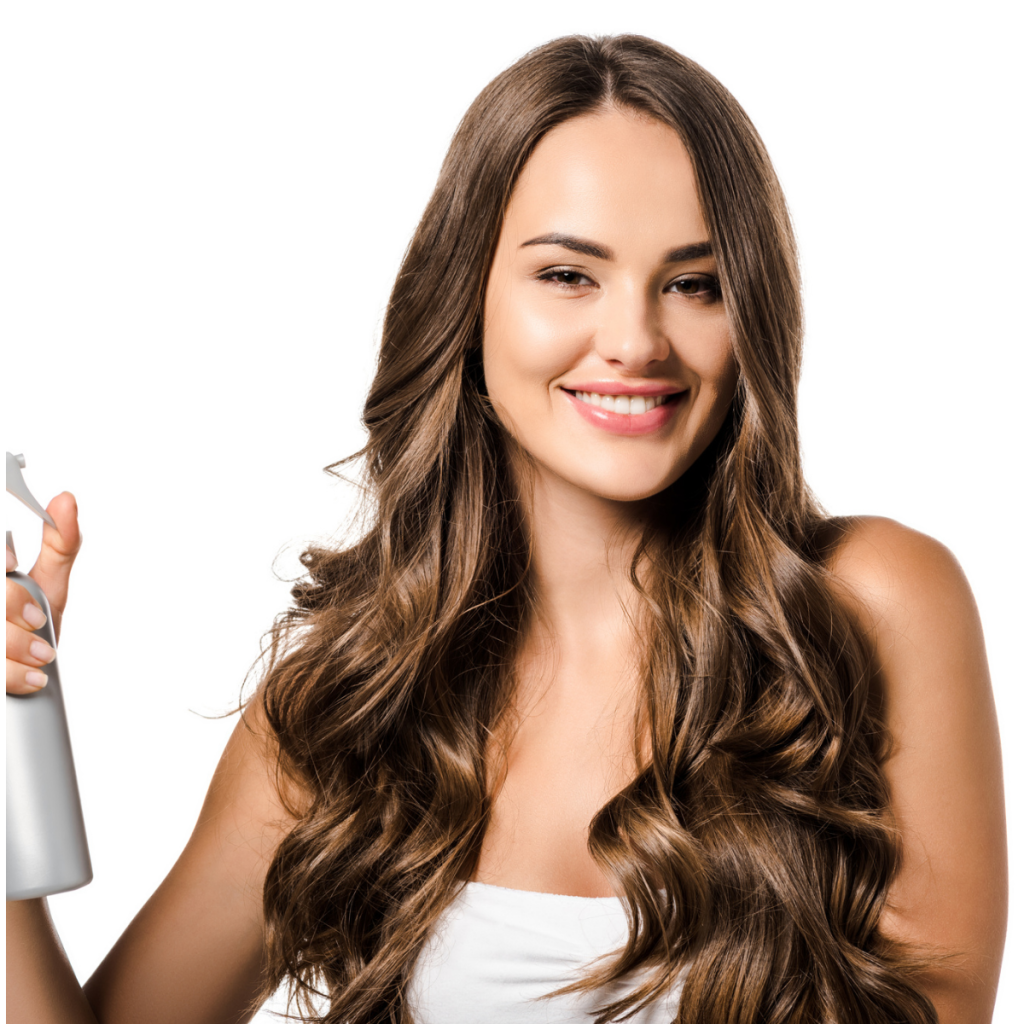Discover the top dandruff shampoo options specifically formulated for fine hair.
The Best Dandruff Shampoo for Fine Hair
Dandruff can be a frustrating problem for anyone experiencing it, but those with fine hair often face unique challenges. Finding the best dandruff shampoo for fine hair is essential to effectively combatting this issue and maintaining healthy, beautiful hair. In this article, we will delve into the causes of dandruff, explore the impact it has on fine hair, discuss key ingredients to look for in dandruff shampoo, review some top products, and provide tips on how to use dandruff shampoo effectively.

Understanding Dandruff and Its Causes
Before we dive into finding the best dandruff shampoo for fine hair, it is important to have a basic understanding of what dandruff is and what causes it. Dandruff is a common scalp condition characterized by flakes of dead skin that often appear on the scalp and can be accompanied by itching. While the exact cause of dandruff is still not fully understood, several factors have been identified as common contributors.
What is Dandruff?
Dandruff is the result of the accelerated shedding of dead skin cells from the scalp. This shedding process is a natural occurrence that happens to everyone, but in the case of dandruff, it is more pronounced and visible. The excess dead skin cells mix with oil on the scalp, forming flakes that can cause discomfort and embarrassment.
Common Causes of Dandruff
Several factors can contribute to the development of dandruff. One common cause is a yeast-like fungus called Malassezia that resides on the scalp of most individuals. This fungus feeds on the natural oils produced by the scalp, and its byproducts can irritate the skin, leading to dandruff.
In addition to the presence of Malassezia, other factors can also contribute to the occurrence of dandruff. Dry skin, for example, is a common culprit. When the scalp lacks moisture, it becomes prone to flaking and itching, resulting in dandruff. On the other hand, an oily scalp can also be a contributing factor. Excessive oil production can create an environment that is favorable for the growth of the Malassezia fungus, leading to dandruff.
Furthermore, certain skin conditions can increase the likelihood of dandruff. Conditions such as psoriasis and eczema can cause the scalp to become inflamed and itchy, leading to the production of excess dead skin cells and dandruff. Hormonal changes, such as those that occur during puberty or pregnancy, can also affect the scalp and lead to dandruff.
Stress is another factor that can contribute to the development of dandruff. When a person is under stress, their body produces more oil, which can exacerbate the growth of Malassezia and increase the likelihood of dandruff. Additionally, the use of certain hair products, such as those containing harsh chemicals or excessive fragrances, can irritate the scalp and trigger dandruff.
It is important to note that while these factors have been identified as common contributors to dandruff, the exact cause can vary from person to person. Understanding the underlying causes of dandruff can help in finding the best treatment and prevention methods for individuals with this scalp condition.
The Impact of Dandruff on Fine Hair
Having dandruff can be particularly challenging for those with fine hair. Fine hair has a smaller diameter and is more vulnerable to damage, making it essential to maintain a healthy scalp to support strong and voluminous hair. Additionally, fine hair is more prone to build-up and can quickly become weighed down by oil and product residue, further exacerbating the appearance of dandruff.
When it comes to managing dandruff on fine hair, it’s important to understand how dandruff affects hair health. When dandruff is left untreated, it can contribute to various hair problems. One of the primary issues is a weakened hair shaft. Dandruff can disrupt the normal hair growth cycle, leading to increased breakage and thinning of the hair. The constant itchiness and scratching associated with dandruff can also damage the hair cuticle, leaving it more susceptible to breakage and frizz. This can result in an overall lackluster appearance and reduced hair volume.
Addressing dandruff and maintaining a healthy scalp is crucial for promoting the overall health and appearance of fine hair. It’s important to find effective ways to combat dandruff without causing further damage to the delicate nature of fine hair. This involves using specialized dandruff shampoos and treatments that are gentle enough for fine hair while still effectively treating dandruff.
Specific Challenges for Fine Hair
In addition to the general impact of dandruff on hair health, fine hair faces specific challenges. Fine hair tends to be more prone to oiliness and limpness, and the presence of dandruff can exacerbate these issues. The accumulation of dandruff flakes and oil on the scalp can make fine hair appear greasier and weigh it down, leading to a flat and lifeless look.
Many dandruff shampoos on the market are formulated to combat oiliness, but it is important to find one that is specifically designed for fine hair. Look for products that are lightweight and won’t leave any residue behind, as this can further contribute to the appearance of dandruff. Additionally, choosing a dandruff shampoo that provides hydration without weighing down the hair can help address the dual concerns of dandruff and fine hair texture.
It’s also crucial to strike a balance between treating dandruff and maintaining the overall health of fine hair. While it’s important to address the root cause of dandruff, overusing harsh dandruff treatments can strip the hair of its natural oils, leading to dryness and further damage. Finding a gentle yet effective dandruff treatment routine is key to managing dandruff without compromising the health and appearance of fine hair.
Key Ingredients to Look for in Dandruff Shampoo
When searching for the best dandruff shampoo for fine hair, it is crucial to understand the key ingredients that can effectively combat dandruff without compromising the health and appearance of your hair. Here are a few ingredients to look for:
The Role of Zinc Pyrithione
Zinc pyrithione is one of the most common active ingredients found in dandruff shampoos. It has antifungal and antibacterial properties that help reduce the excessive growth of the Malassezia fungus on the scalp. This ingredient is effective against dandruff and is often well-tolerated by most individuals.
When applied to the scalp, zinc pyrithione works by inhibiting the growth of the fungus that contributes to dandruff. It helps to normalize the scalp environment, reducing the flakiness and itching associated with dandruff. Additionally, zinc pyrithione has been found to have moisturizing properties, which can be beneficial for those with fine hair that is prone to dryness.
Furthermore, zinc pyrithione has been shown to have a positive impact on sebum production, helping to regulate oiliness on the scalp. This is particularly important for individuals with fine hair, as excessive oiliness can weigh down the hair and make it appear flat and lifeless.
The Benefits of Salicylic Acid
Salicylic acid is another ingredient commonly found in dandruff shampoos. It works by gently exfoliating the scalp, removing dead skin cells and reducing flakiness. Salicylic acid can also help to normalize oil production on the scalp, making it a particularly good choice for those with fine hair prone to oiliness.
When applied to the scalp, salicylic acid penetrates the pores and helps to unclog them, preventing the buildup of dead skin cells and excess oil. This exfoliating action promotes a healthier scalp environment, reducing the likelihood of dandruff formation. Additionally, salicylic acid has anti-inflammatory properties, which can help soothe any scalp irritation or redness caused by dandruff.
Moreover, salicylic acid has been found to have a mild antifungal effect, further assisting in combating the Malassezia fungus. By addressing both the excess oil production and the fungal overgrowth, salicylic acid provides a comprehensive solution for dandruff-prone fine hair.
Understanding Ketoconazole
Ketoconazole is a powerful antifungal agent used in some dandruff shampoos. It effectively combats the overgrowth of the Malassezia fungus and provides long-lasting relief from dandruff symptoms. However, it is important to note that ketoconazole shampoos may require a prescription, so consulting with a dermatologist may be necessary if you are considering this option.
Ketoconazole works by inhibiting the growth of the fungus and disrupting its cell membranes, leading to its eventual elimination. This ingredient has been extensively studied and proven to be highly effective in treating dandruff. It offers long-lasting relief, with many individuals experiencing a significant reduction in dandruff symptoms after just a few uses.
It is worth mentioning that ketoconazole shampoos are typically used as a treatment rather than a daily shampoo. This is because ketoconazole is a potent antifungal agent and using it too frequently may disrupt the natural balance of the scalp microbiome. Therefore, it is essential to follow the instructions provided by your dermatologist or the product packaging to ensure safe and effective use.
In conclusion, when choosing a dandruff shampoo for fine hair, consider the active ingredients such as zinc pyrithione, salicylic acid, and ketoconazole. These ingredients offer various benefits, from inhibiting fungal growth to exfoliating the scalp and normalizing oil production. Remember to consult with a dermatologist if you have any concerns or if you are considering a ketoconazole shampoo that requires a prescription. With the right dandruff shampoo, you can effectively manage your dandruff while keeping your hair healthy and beautiful.
Top Dandruff Shampoos for Fine Hair
Product Reviews and Comparisons
When it comes to selecting the best dandruff shampoo for fine hair, it can be overwhelming to sift through the numerous options available. To make your search easier, we have compiled a list of some top dandruff shampoos specifically formulated for fine hair:
- Brand A Dandruff Shampoo for Fine Hair
- Brand B Gentle Dandruff Shampoo
- Brand C Fine Hair Dandruff Control Shampoo
- Brand D Strength and Volume Dandruff Shampoo
Each of these shampoos has its unique qualities and benefits, so be sure to read product reviews and compare them to find the best fit for your specific needs.
How to Use Dandruff Shampoo Effectively

Best Practices for Washing Fine Hair
When using dandruff shampoo for fine hair, it is essential to follow a few best practices to ensure optimal results:
- Start by thoroughly wetting your hair and scalp with lukewarm water.
- Apply a small amount of dandruff shampoo to your palm and gently massage it into your scalp, focusing on the affected areas.
- Let the shampoo sit for a few minutes to allow the active ingredients to work their magic.
- Rinse your hair thoroughly, making sure to remove all traces of shampoo.
- Repeat the process if necessary, but avoid excessive washing, as it can strip the hair of natural oils.
How Often Should You Use Dandruff Shampoo?
The frequency of dandruff shampoo use depends on the severity of your dandruff and how well your scalp responds to treatment. In most cases, it is recommended to use dandruff shampoo at least twice a week initially, and then gradually reduce the frequency as your symptoms improve. It is important to strike a balance between effectively treating dandruff and maintaining the health of your fine hair.
By understanding the causes and impacts of dandruff on fine hair and choosing the right dandruff shampoo, you can effectively combat this issue and achieve a healthy scalp and beautiful hair. Remember, consistency and patience are key, so stick to your chosen regimen and give it time to work its magic. Here’s to a dandruff-free and fabulous hair!






[…] and promoting healthy growth. Kinky hair, in particular, can greatly benefit from protein-rich shampoos as it helps to fortify the hair shafts and improve overall hair […]
[…] are specially designed to provide the necessary nourishment and protection to coily hair. These shampoos contain ingredients that strengthen the hair strands, reduce breakage, and promote overall hair […]